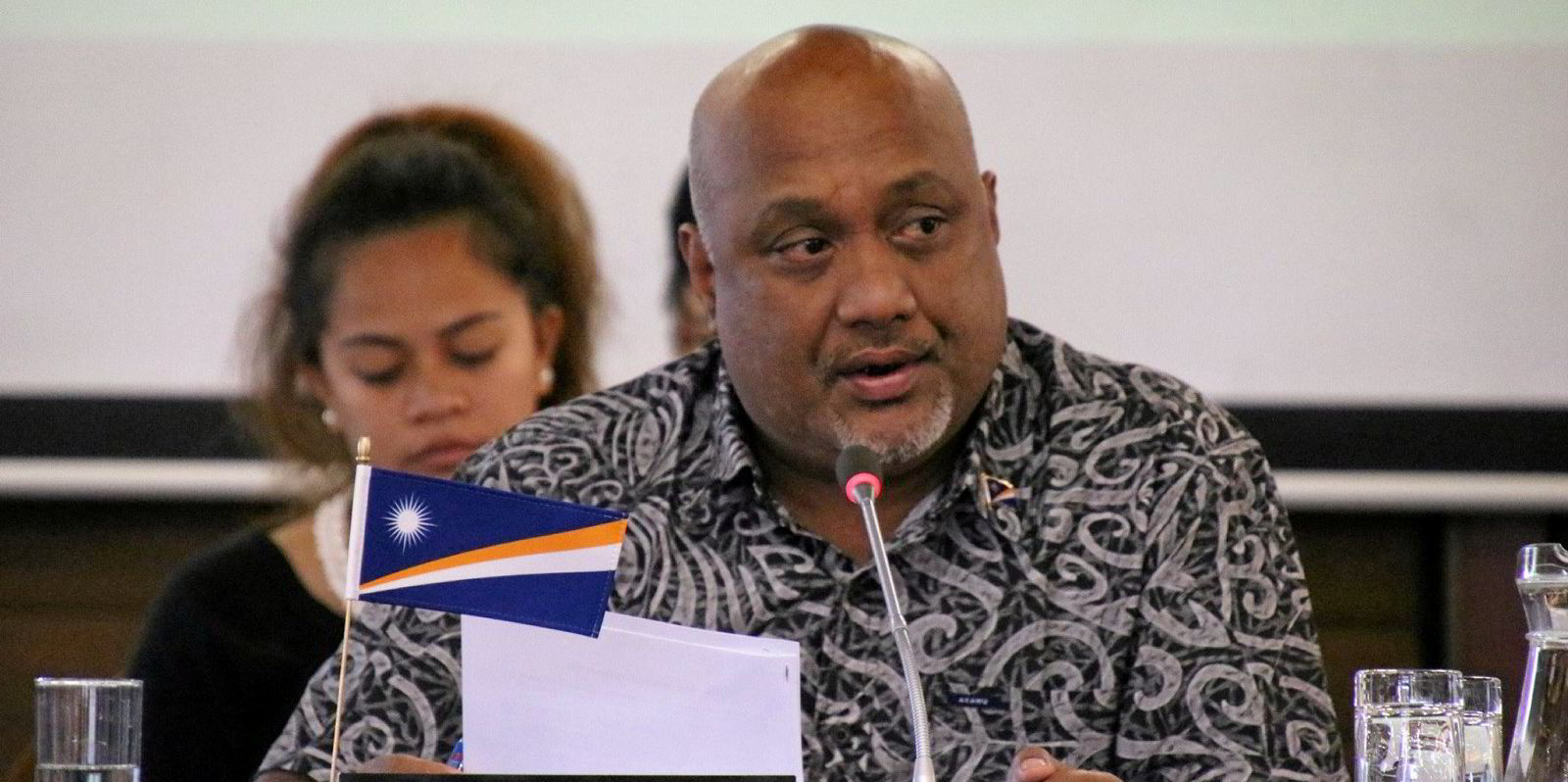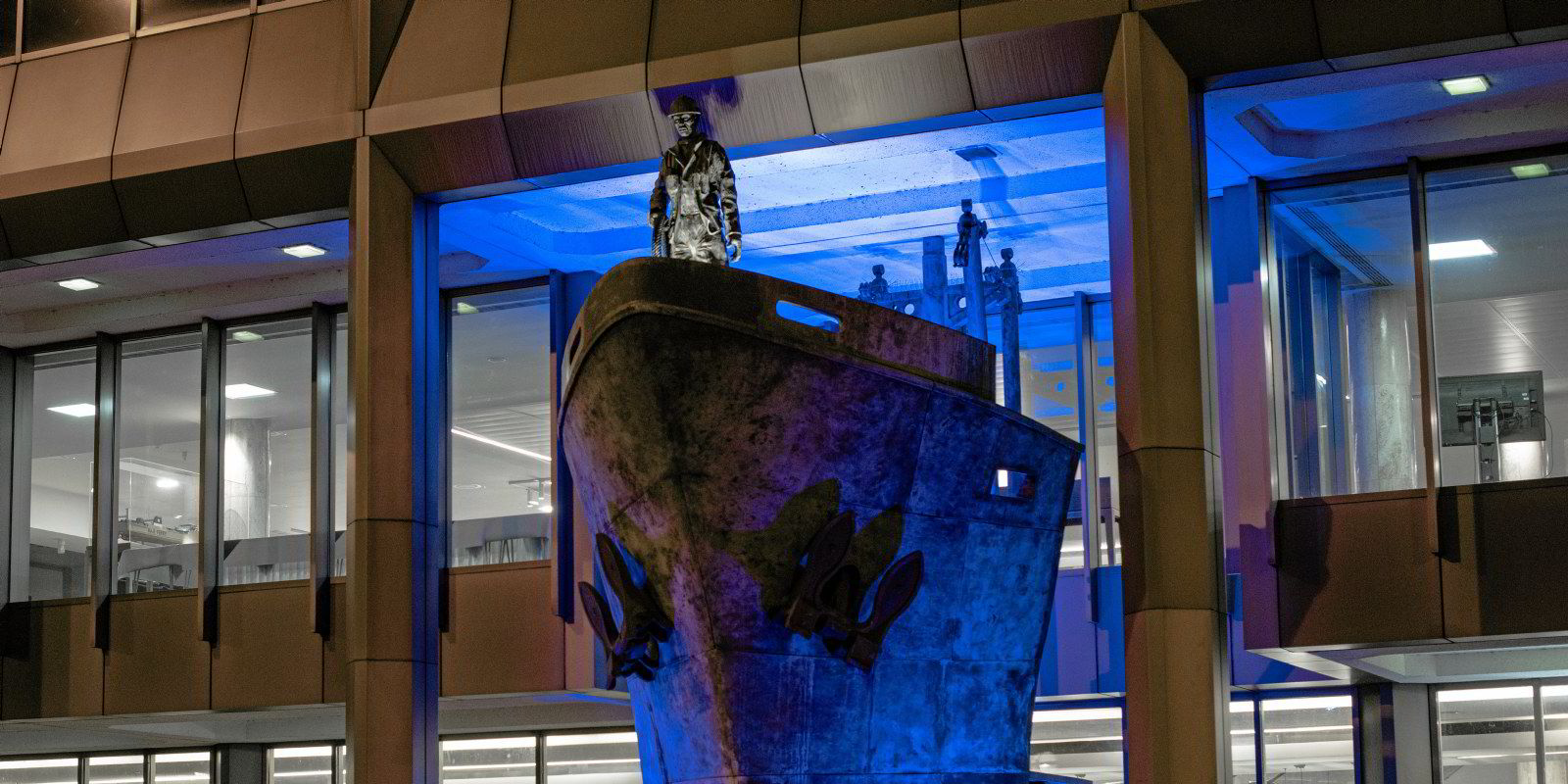The International Maritime Organization opened a week of meetings on decarbonisation with a debate over how quickly it should set its course toward a zero-carbon goal for 2050.
Several countries expressed support for a proposal by climate-vulnerable island nations that called for the UN shipping regulator's Marine Environment Protection Committee (MEPC) to adopt a resolution targeting zero greenhouse gas emissions by the middle of the century.
But on the first day of the MEPC's week long meeting, oil-producing and developing nations expressed disagreement with deciding now to pursue full decarbonisation by 2050.
In the middle, many nations voiced support for upping the IMO's ambition, but with a view towards revising the strategy in 2023.
The US was among nations expressing support of a proposal by Kiribati, the Marshall Islands and the Solomon Islands for an MEPC resolution.
"The science is clear. In order to keep 1.5 degrees Celsius within reach, we must cut global CO2 emissions by 45% by 2030 relative to the 2010 levels and reach net zero by 2050," Jeffrey Lantz, the director of commercial regulations and standards for the US Coast Guard.
He said that is why the US supports the proposal that "calls on the MEPC to recognise through a clear, simple and unambiguous statement, that urgent action at IMO is needed and is indeed necessary to keep the Paris Agreement temperature goals within reach".

But Saudi Arabia and others warned against taking rash decisions, alleging that there are many questions that need to be answered a net-zero target.
Fernanda Millicay, a member of Argentina's IMO delegation, said that decarbonisation must consider the impact of measures on developing countries. A strategy review should include provisions for technology transfer, so nations are not left behind.

"We have to maintain ambition and enhance it, while at the same time have to commit to a fair transition," she said.
Renato Levanteze, a member of Brazil's IMO delegation, said the draft resolution put forward by Kiribati and its neighbours fails to address key issues.
Among them, he said adopting a net-zero target will impose the need for offsets to be adopted, which needs to be carefully considered.
"Net zero is a zero-sum game and can delay meaningful reductions in GHG and prevent effective climate policy from happening," he said, referring to greenhouse gases.
"We need structural change, to effectively reduce emissions, including financial and technology transfers, appropriate capacity building and feasibility studies."
Many delegations that support a zero-carbon goal urged the IMO to focus on its 2023 strategy revision already envisioned in the IMO's decarbonisation timeline.
But Ambassador Albon Ishoda, of the Marshall Islands' delegation to the IMO, said that the organisation's current plans are not in line with the Paris Agreement or the outcome of COP26.
"The urgency is supported by science, and by the experience by those of us already living on the frontline of this crisis," he said. "We do not have time to waste."




